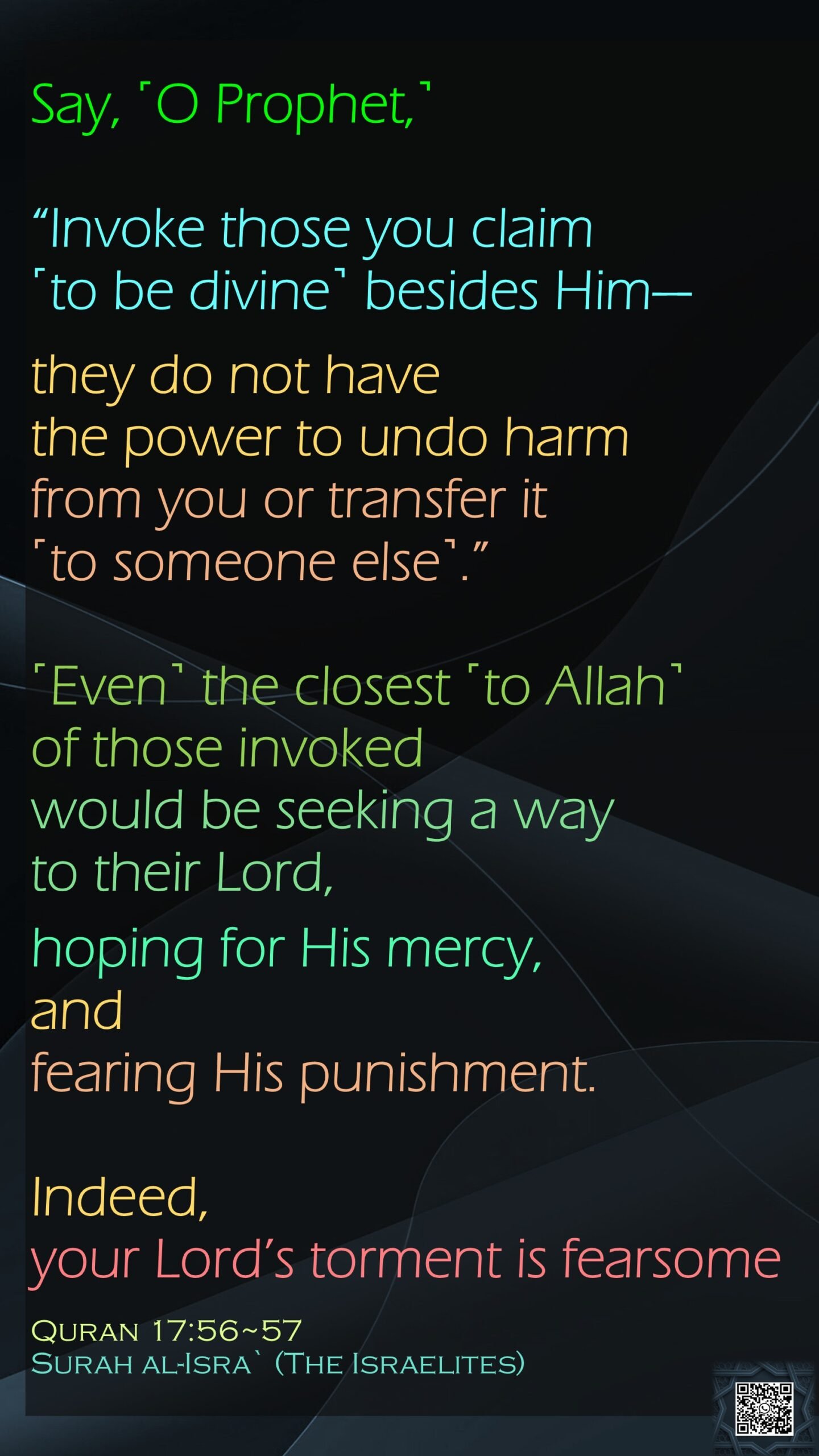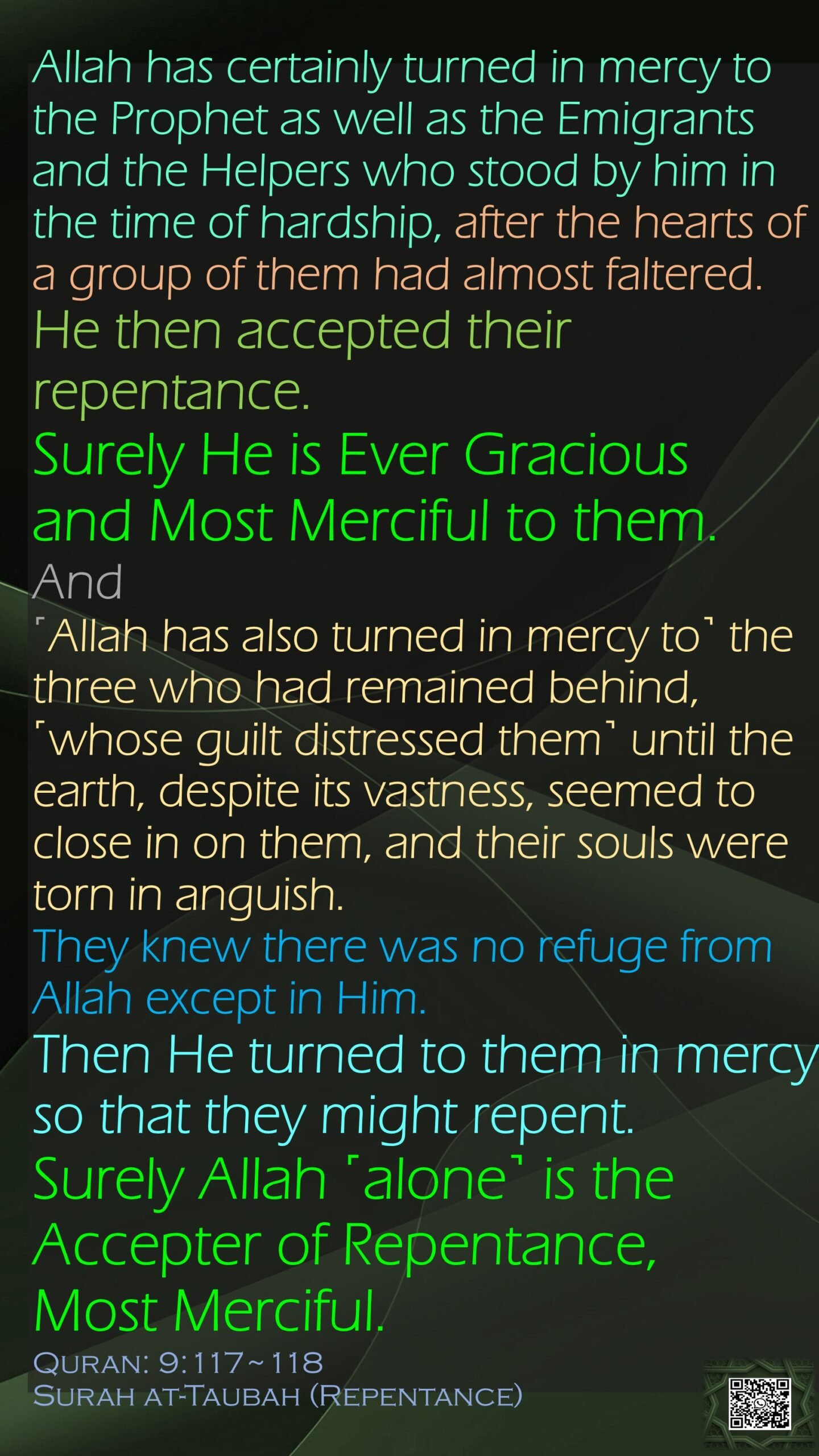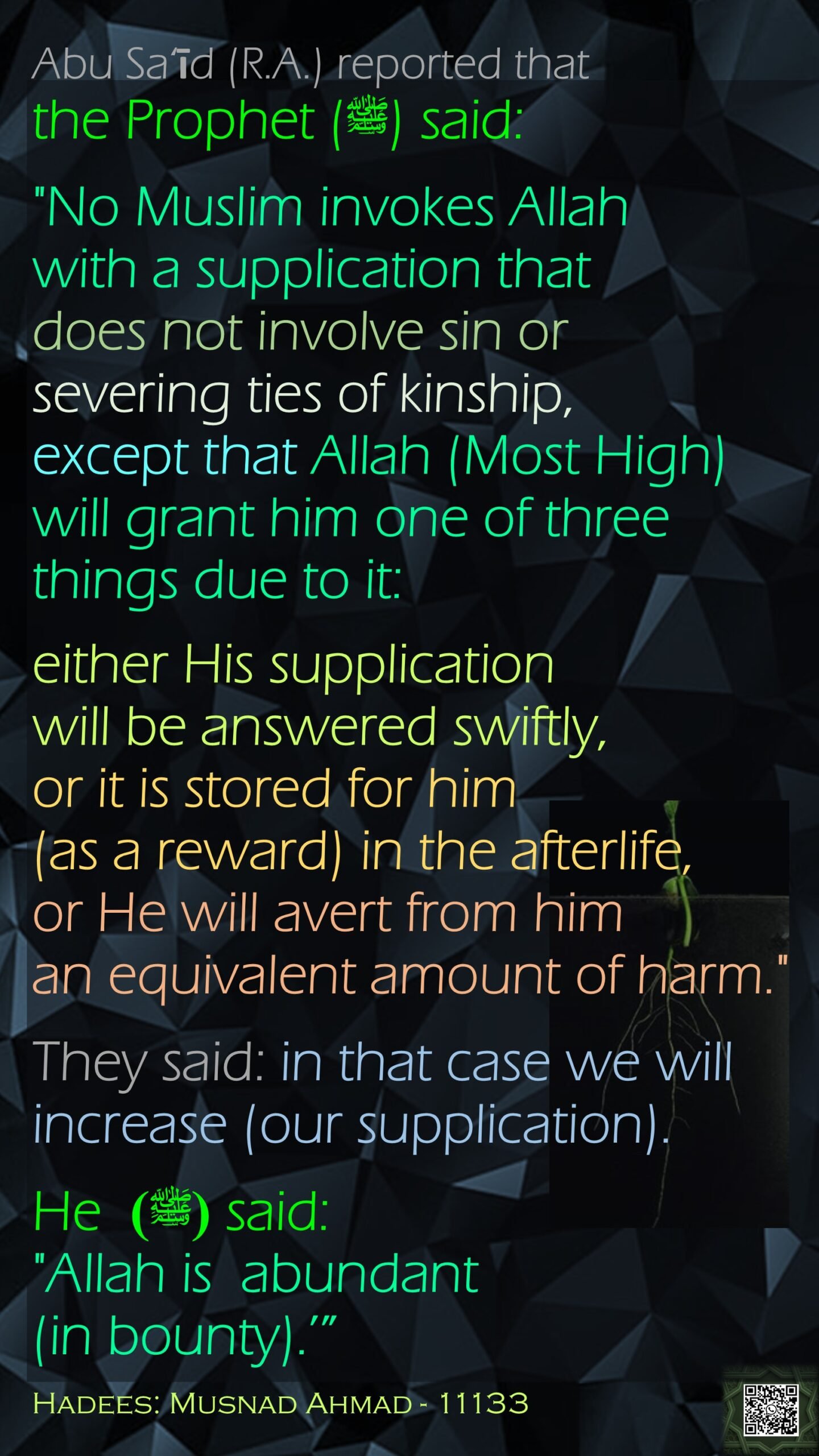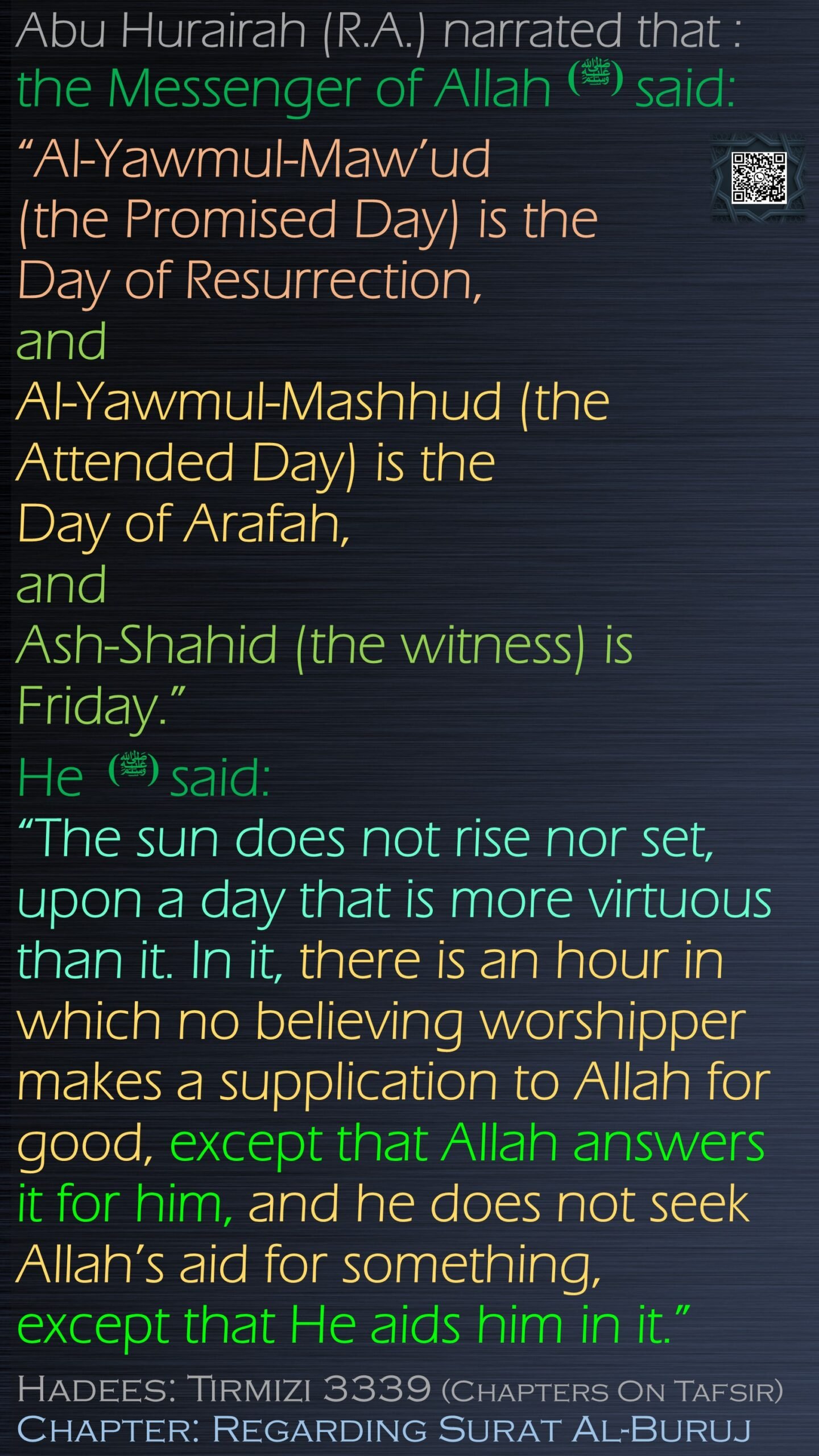10
Sep, 2025
Hadees: Bukhari 6326
Hadees, Islam 2705, 4/2078, 6326, 834, Abu bakr, Allah, authentic, book, bukhari, daily, forgive, forgiveness, Forgiving, hadith, inspirations, Invocation, islam, islamic, Merciful, Mercy, most, Muhammad, Muslim, prayer, Prophet, quran, Sahih, siddiq, sin, supplication, Surah, tashhud, wrong, wronged
9
Sep, 2025
Hadees: Muslim 2752A (Mercy)
Hadees, Islam 1, 2572, 6972, 99, Allah, care, daily, day, forgivenes, forgiveness, hadees, hadith, hood, inspirations, islam, islamic, life up, love, Mercy, Muhammad, Muslim, mutual, ninty nine, resurrection, Sahih
25
Jun, 2025
Quran 9:117~118 (Ayah at-Taubah)
Islam, Quran 009, 117, 118, accept, acceptemigrant, acceptor, Allah, anguish, close upon, daily, distress, Ever gracious, falter, guilt, hardship, heart, inspirations, islam, islamic, Mercy, Most Merciful, Muhammad, quran, refuge, Repenetence, Soul, Surah, taubah, vast
24
Jun, 2025
Hadees: Musnad Ahmed 11133 (Fate of Supplications)
Hadees, Islam 11133, abundant, afterlife, ahmed, Allah, better, Bounty, daily, equivalent, grant, hadees, harm, increase, inspirations, islamic, kinship, Mercy, more, Muhammad, musnad, often, remove, reward, sin, store, supplicate, supplication, swift, three, ti
5
Jun, 2025
Hadees: Tirmizi 3339
Hadees, Islam 3339, aid, Allah, alone, angel, answer, Arafa, Arafat, Attend, Attended, Attended Day, chastiment, cover, daily, day, Death, descend, dishelved, dust, faces, far, fight, friday, hadees, hadith, hair, Heaven, hellfire, inspirations, Isa, islam, islamic, Jesus, jihad, Kingdom, Life, Mercy, Moses, Muhammad, Musa, Muslim, Near, nearest, No god but Allah, power, praise, promise, Promised, Promised Day, Prophet, rise, seek, servant, set, sorshipper, sun, supplication, surah Buruj, thins, Tirmizi, without partner, witness, worship
27
Mar, 2025
Quran 18:10 (Supplication of the People of the Cave)
Islam, Quran 010, 018, Allah, Ashab-ul-Kahf, ayat, Byzantine, Cave, cave of the seven sleepers, daily, God fearing, grant, guide, inspirations, islam, islamic, Kahf, Lord, Mercy, Muhammad, Muslim, ordeal, people, people of the Cave, quran, right, seven, seven sleepers, signs, sleep, sleeper, supplications, Surah, tomb
16
Mar, 2025










